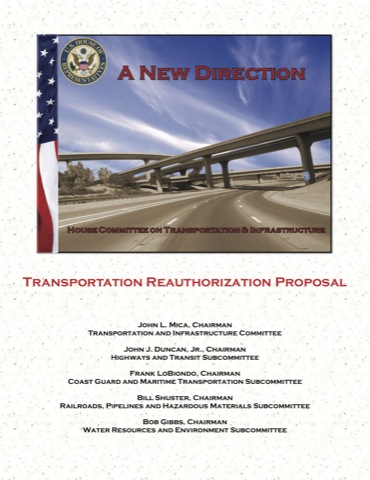While the Antiplanner was in Montana, President Obama asked Congress to pass a “clean extension” of the surface transportation laws. By this, he meant that Congress should continue spending money like a drunken sailor the way it has been spending it for the past several years (more specifically, spending it faster than it has been coming in).
But what he meant is not what he said. Instead–apparently aiming at the actual reauthorization–he argued that, “We need to stop funding projects based on whose districts they’re in and start funding them based on how much good they’re going to be doing for the American people.” There are a couple of problems with this. First, it wouldn’t happen with a “clean extension” of the transportation bill, which doesn’t do this.








